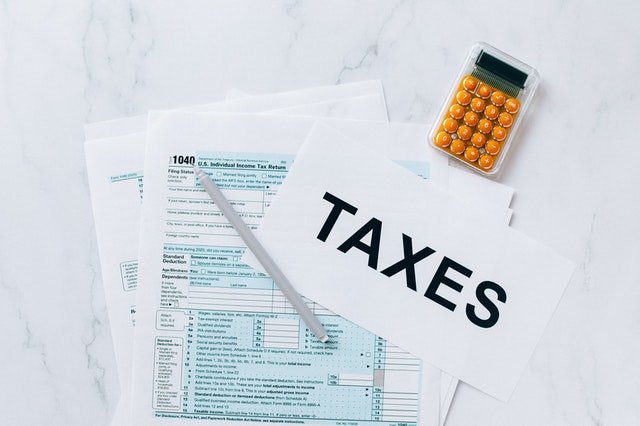What is a cryptoasset or cryptocurrency?
Many people will have heard of Bitcoin, Ethereum, Ripple, Dogecoin, Bitcoin Cash, Litecoin and perhaps Stellar, Tether or Eos. There are many different types of cryptoassets. So-called ‘cryptocurrencies ‘ are just one variation.
There are thousands of new forms of cryptoassets that are less currency-like and can have other attributes. These attributes can make them a form of token and tradable on different platforms worldwide.
A cryptocurrency is a type of cryptoasset which shares many similarities with other currencies.
- You have fluctuating exchange rates that are driven by the market.
- You can buy and sell the currency in exchange for other cryptocurrencies or for fiat currencies, such as pounds, euros or dollars.
- You can conduct transactions online.
- Most cryptocurrencies use blockchain technology and some are built around different platforms.
Note that although cryptocurrency shares many similarities with other currencies, it is not considered to be currency or money by the Bank of England, G20 Finance Ministers and Central Bank Governors, or HMRC.
Cryptocurrency has become extremely popular, not least because it uses new technology which has almost infinite possibilities. Importantly for many disrupters, it is not managed by normal banks. Normal bank charges do not apply as you do not hold the currency in a bank but in a digital wallet.
How are cryptoassets taxed?
HMRC have replaced their papers on the taxation of crypto assets with a dedicated HMRC Manual which includes some additional clarifications.
Under conventional tax rules, whether your profits are taxed as income or your gains are taxed as capital, depends on whether you are trading (income) or investing (capital). HMRC’s view is that, in most cases, individuals will hold cryptoassets as a personal investment and so be subject to capital gains tax on disposal.
As we have discussed, HMRC do not currently recognise BTC etc as a currency, however, cryptoassets are intangible assets and appear to fall into section21(1)(a) of TCGA 1992. This means that disposal proceeds are taxed as capital gains unless there is evidence of trading.
Calculating those gains may not always be so straightforward. Many cryptoassets are traded on exchanges that do not use pound sterling and it is also common in the crypto world to directly exchange one cryptoasset for another. Add into this the daily volatility in the crypto market, and actually valuing your cryptoassets on disposal can be tricky.
HMRC views different types of cryptoassets as separate assets for capital gains purposes. The swapping of your Bitcoin for another token, will trigger a disposal for capital gains tax purposes even if no actual currency has been received. In this case, the individual investor would realise either a taxable gain or loss as a result and may need to make further disposals of cryptoassets into actual currency to meet their tax obligations.
In December 2021 HMRC updated their guidance on
Digital Services Tax (DST) to confirm that as cryptoassets are not considered to be money or currency the online financial market places exemption from DST will not apply to cryptocurrency exchanges. Such exchanges/platforms may be subject to DST.
HMRC has confirmed in its Cryptoassets manual that:
- Most individual investors in cryptoassets and cryptocurrencies will be subject to Capital Gains Tax (CGT) on gains and losses.
Section 104 pooling applies for individuals, subject to the 30-day rule for ‘bed and breakfasting’. Different pooling rules apply for businesses.
- It will be rare to regard investing in cryptoassets as trading, although ‘mining’ is likely to indicate a trading activity.
Other tax treatments rather than trading or investment may need to be considered by companies such as loan relationships and the intangibles rules.
- A capital loss may be claimed in the event that a cryptoasset becomes of negligible value. Evidence of any loss will need to be approved if the loss of the asset arises as a result of the accidental destruction of a private encryption key or fraud.
Exchange tokens such as Bitcoin are located for tax purposes where ever the beneficial owner is resident.
VAT may need to be considered.
- HMRC does not consider cryptoassets to be currency or money.
Some individuals may also be involved in mining and validating transactions, as well as staking and yield farming. In doing so, they will often be rewarded either through the receipt of fees and/or further cryptoassets. Typically, such rewards will be subject to income tax, but whether that is as trading income or not will depend on the particular facts and applying the case law principles of trading versus investment to those facts.
Trading or investment?
- If you are actively mining BTC, or you are a dealer making multiple trades through buying and selling different investment assets or mixing currencies, you may well be treated as a trading operation.
- If you are buying and holding your investment and then selling according to the market conditions, you are investing and your gains or losses will be taxed as capital.
- Although there are thousands of different types of cryptoassets in existence HMRC do not accept that buying and selling the most popular versions of these assets is a gambling activity.
- HMRC say in their manual that they would only expect individuals to buy and sell exchange tokens with such frequency, level of organisation and sophistication as to amount to a financial trade in itself in exceptional circumstances.
The key test to determine whether you are trading for tax purposes is to apply what are known as the Badges of Trade. These look at what you do in your day job, the frequency of trades and your objectives in owning the cryptocurrency. Guidance can also be taken from case law dealing with trading in shares and securities. Each case needs to be considered on its own facts, especially given the multifunctionality of some cryptocurrencies.
- If your profits are taxed as income, they are taxed at the same rate as a salary or profit from trading.
- There are no special allowances or rates that apply to such profits.
- If you make a trading loss, you should be able to offset this as
Sideways loss relief against your other income.
- If you are trading you are expected to prepare trading accounts for tax and register as a sole trader for income tax.
- Profits may also be taxed as miscellaneous income though this is even less likely.
If your gains on disposal are taxed as capital, you should obtain tax relief on the direct costs of buying and selling the cryptocurrency investment. You may offset your annual Capital Gains Tax (CGT) exemption if it is unused elsewhere.
HMRC powers
If you are buying or selling cryptocurrency on the regular web through popular platforms, HMRC’s bulk data-gathering powers maywell extend to your broking platform. If the platform is in the UK your details and gains are capable of being reported to HMRC.
HMRC’s data-gathering powers extend to other countries and there are data-sharing agreements with over 100 other countries.
There are difficulties for tax authorities in keeping up with new technology and new online platforms. It looks as if there may be major challenges in data sharing when the type of data is constantly evolving.
If you have used a cryptocurrency to purchase software or gaming points, it is unlikely that you have made a profit and HMRC will not be worried about you. You can claim tax relief on the cost of software if it is used in your business.
If you have used cryptocurrency to buy whatever it is you chose to buy on the dark web it seems unlikely that you will have made a profit on cryptocurrency.
It may be difficult for any authority to track your transactions even if they are made via blockchain. It seems unlikely that HMRC isgoing to be concerned about what you purchase. What you sell and who you sell to is another matter.










